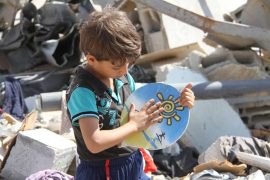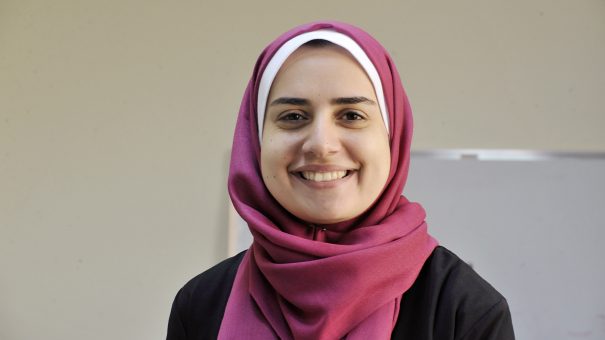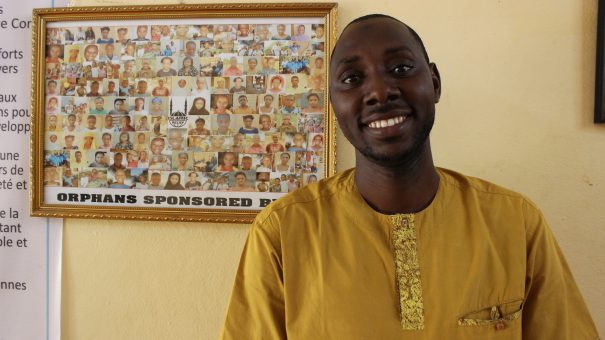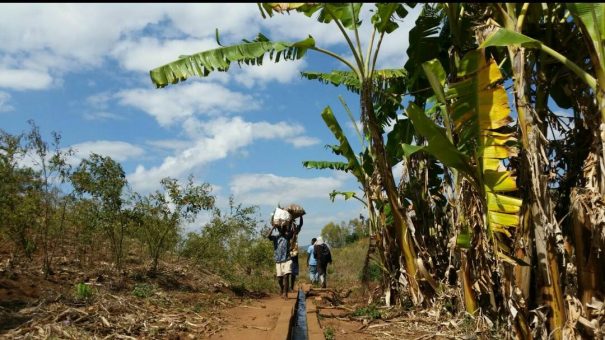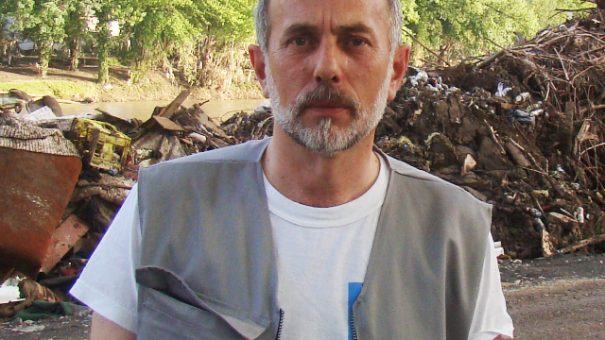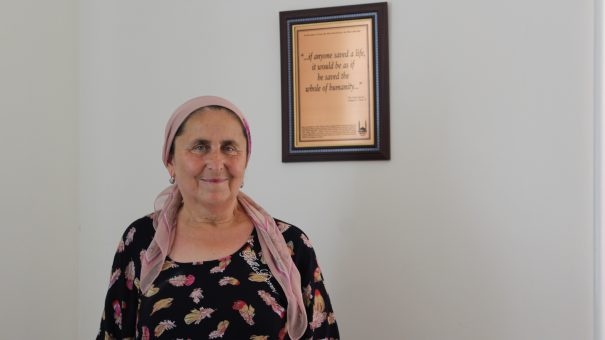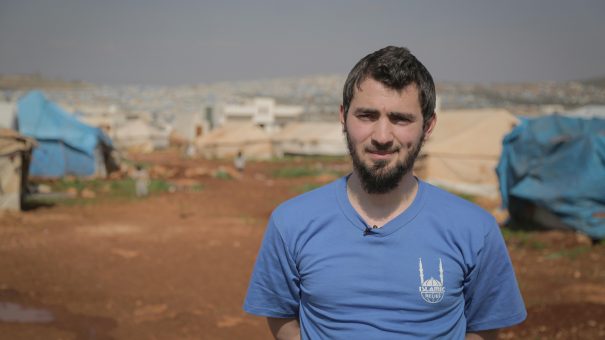For World Humanitarian Day we’re paying tribute to our humanitarian heroes in the field.
Semir Velija Kukuruzović was one of our very first members of staff in Bosnia and Herzegovina when we originally started working there in 1992 as war had just begun.
Three years in, food supplies had dwindled and the people of BiH had become heavily dependent on humanitarian aid. Semir, now country director, remembers:
“It is much easier for a grown man, when he sees the circumstances of poverty, to understand and accept. But what could be said to a five-year-old boy, my nephew, who just lost his father and who is desperately hungry?
“I was present when the boy asked his mother, my sister, to draw him a pan with eggs in it that he liked so much but hadn’t seen for so long. At that time, it was almost impossible to find a chicken egg in Sarajevo.
“After she drew what he asked, the little boy took the paper, took a good, long look at it, put it in his mouth and ate it. My sister tried to take the paper out of his mouth, while the rest of us watched the scene in shock and in tears.
“The next day, I came into the office and one of my colleagues, who was diabetic and faced the problem of constant hunger, asked the rest of us what we most wished we could have to eat.
“When my turn came, I said I would just like to have one egg so I can make one boy, named Ahmed, happy. I relayed the story of what had happened the night before.
“While I was telling the story, one of the guests, Dr Wasim, was listening intently. Afterwards everybody became quiet and closed themselves off in their offices.
“The following day, Dr Wasim came to the office again and asked me to meet him in a separate room. After I walked in, he took a single egg from his pocket and told me to make Ahmed happy.
“He said he went to the Egypt battalion of the international military forces (who were present in Bosnia as observers) to get the egg. I hugged him and I was the happiest person in the world.
“I made duas [said prayers] for him. I couldn’t wait to finish so I could go home and see Ahmed.
“I was almost running home, and straight away I showed the egg to Ahmed at the door. After screams of happiness he took it to his mother. After she prepared it, Ahmed and his brother sat down to eat, inviting all of us to join them. We were all laughing.
“After they finished eating, my five-year-old nephew came to me and asked:
‘Uncle, in which hand did you bring the egg?’
‘Why?’ I asked.
He said: ‘I want to kiss that hand.’
We all cried at being witnesses to how one small thing can make a child so happy and how we all actually need so little to be happy. But unfortunately we are human and we forget very fast.
“So this story serves as a reminder to me – and then to everyone who will read it. Let us be happy with what we have. Let us not be greedy for what we don’t have. This is the way to find true happiness.”
